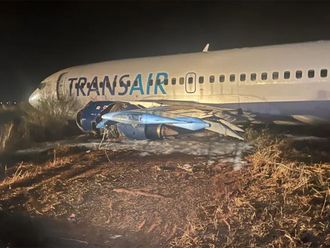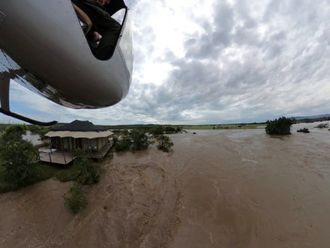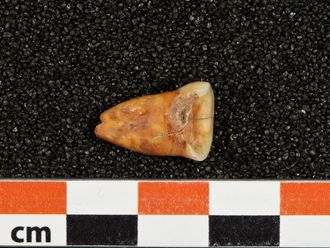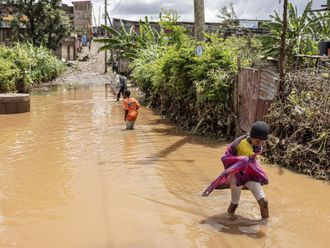Abuja: Nigeria’s intelligence agency on Tuesday said it had arrested a recruiter for Daesh, as well as seven alleged members of the Boko Haram offshoot Ansaru.
The announcement comes nearly a year after the leader of Boko Haram in northeast Nigeria, Abubakar Shekau, pledged allegiance to the Daesh leader in Syria and Iraq, Abu Bakr Al Baghdadi.
Speculation has been rife since then about whether closer links would be forged between the two groups, with lawless Libya and the remote Sahel region pinpointed as a possible source of contact.
The Department of State Services (DSS) said in an emailed statement that Abdussalam Enesi Yunusa was detained in the northern city of Kano on January 17.
His arrest came after intelligence unveiled “his terrorist antecedents and covert drive to indoctrinate and recruit susceptible youths in the country,” the statement read.
The DSS described Yunusa as a “recruiter for the Islamic State of Iraq and Syria [ISIS, another name for Daesh]” and said he was preparing to go to Libya to join an “ISIS terrorist training camp” with at least three others.
The secret police said he told them two other Nigerians were already undergoing training in the North African country, which has slid into bloodshed since the fall of Muammar Gaddafi in 2011.
At least two others, including one from Niger, were “ISIS [Daesh] agents operating in Nigeria and the West African subregion”, funded by a Daesh “media expert” using international money transfers.
Four others were arrested in Kano on January 22 “while migrating to Libya, with their immediate families, including infants, in a bid to join ISIS [Daesh]”, the DSS said.
Two students were arrested a week later, also in Kano, on suspicion of plotting “coordinated lone wolf attacks” on crowded civilian targets in Nigeria, it added.
Tie-up fears
Fears have been expressed about a link-up between Daesh fighters in Libya and Boko Haram as well as Al Qaida-affiliated groups in places such as Mali and elsewhere in North Africa.
But there has been little evidence of the use of foreign fighters in Boko Haram’s insurgency, which has left at least 17,000 dead and displaced more than 2.6 million people since 2009.
Nigeria’s President Muhammadu Buhari told Britain’s Daily Telegraph in an interview published on Thursday he was aware of reports of Nigerians in the Libyan town of Sirte and Syria itself.
“I don’t know which side, but they may be fighting for ISIL [Daesh]. How many, I have no idea,” he was quoted as saying.
On February 3, Buhari said in a speech to the European Parliament that Libya was a “strategic time bomb” because of the proliferation of weapons, many of which reach Boko Haram.
About Ansaru, a Boko Haram splinter group more ideologically aligned to Al Qaida, the DSS said it arrested seven alleged members in the northern state of Katsina on January 17.
“This group was discovered in an active stage, as its members were already coordinating themselves for attacks in Katsina and Kano states, it added.
Little has been heard of Ansaru, which formed in 2012 on the back of ideological differences and a leadership struggle between Shekau and a high-ranking commander known as Khalid Al Barnawi.
It claimed a string of kidnappings of foreigners in Nigeria and northern Cameroon.












